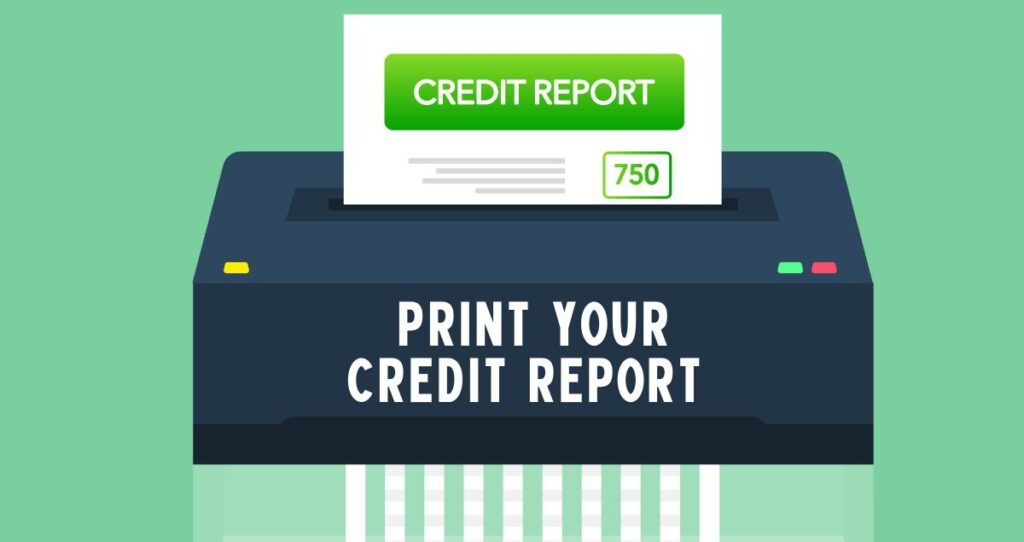Have you wondered if a simple look at your credit score will do more harm than good? The truth is your credit score isn’t affected when you check it. This is because checking your score results in a soft inquiry, which is not a factor in credit score calculation. Understanding your credit information is one of many ways to maintain a healthy credit history. This article will explore how to check your credit score for free, what to expect after checking it, and tips to raise your score and repair your credit.
So, let’s explore what you need to know about checking your credit score and why it is always a good idea to do so regularly and monitor your credit reports.
Does my credit score go down when I check it?
No. Checking your credit score does not lower it because the activity results in a soft inquiry, which has no impact on your credit score. The credit reporting bureaus have systems in place to differentiate between a consumer checking their own score and a potential lender or creditor pulling your credit report. Your credit score does not go down when you check it yourself.
If a lender pulls your credit report and views your credit score when you apply for credit, your credit score will drop. This is because pulling your credit results in hard inquiries on your credit reports, which drop your score by 5 to 6 points on average.
What happens when you check your credit score?
Checking your credit score or getting a copy of your credit report does not impact your credit score. The best way to maintain healthy credit is to regularly check your credit score and review your credit report to ensure your account information is current and accurate.
When you check your own credit score, it results in a soft inquiry. A soft inquiry does not affect your credit score and is not viewable by potential lenders who pull your credit report when you borrow money.
A soft inquiry is different from a hard inquiry. A hard inquiry appears on your credit report when a lender pulls your credit report to assess your creditworthiness. Hard inquiries affect your credit score, and you can expect your credit score to drop by 5 to 6 points from a single hard inquiry. Depending on your credit score, a hard inquiry can knock off as many as 10 points from your credit score. In most cases, the effect of a hard inquiry will not be that significant.
Why should you check your credit score?
Checking your credit score helps you identify areas that need improvement and better understand how lenders view you. This will enable you to make more informed decisions about your financial future. For example, suppose your credit score is not improving due to higher credit utilization on revolving credit accounts like credit cards. In that case, you can start paying down some of your account balances to lower your credit utilization.
Checking your credit score also allows you to monitor fraudulent activity or identity theft on your credit accounts. These activities can easily be detected on your credit report or shown by a decrease in your credit score due to authorized account activity, such as a large purchase, etc.
Check out this quick guide to raise your credit score in 30 days.
How can you check your credit score for free online?
Checking your credit score for free online is a straightforward process, as there are many third-party websites where you can check your score. Most companies that offer credit cards also give you access to an estimate of your credit score for free. For example, if you have a credit card from big banks, CapitalOne, Discover, etc., you can access your credit score inside your account.
To get a free credit score, log into your credit card account and check it yourself. If you are unsure whether your credit card comes with a free credit score, check inside your online account or call the card issuer.
If your provider does not offer a free credit score, you can check it for free online. Here are examples of websites where you can check your credit score.
- myfico.com. This is a place to find your FICO scores for free online. For a small fee, you can access advanced services such as identity monitoring, theft insurance, mortgage scores, etc. you will pay a fee.
- CreditKarma.com or Nerdwallet.com. These are third-party websites that give you access to your credit scores. CreditKarma gives you free Equifax and TransUnion credit scores, while Nerdwallet gives you TransUnion credit scores.
- Credit Bureaus. Another option to check your credit score is to get them directly from credit bureaus. While you can get free annual credit reports from each bureau, credit bureaus charge a small fee for credit scores.
- Check your credit score inside your credit card account. Many credit card issuers also give you free access to your credit score. If you have an online credit card account, check if you have these options. For example, Discover gives you a free FICO score, while Capitalone gives you access to your VantageScore for free.
Steps to check your credit score for free online.
To check your credit score for free online, follow these simple steps.
- Decide which website offers a free credit score you want to use. Ensure that the website is secure and trustworthy. For example, Creditkarma.com is a credible place to check your Equifax and TransUnion credit scores for free.
- Create an account on the website. You may need to provide some personal information, such as your full name, address, and date of birth.
- View your credit score. Once your account is created, you will have an option to view your credit score for free. You may also be able to access other tools and resources such as credit monitoring, identity theft protection, education material, and more.
- Log out of your account. You should log out of your account, mainly when you use a public network or computer.
How many hard inquiries are too many?
When it comes to hard inquiries, it is not about whether a certain number of hard inquiries is good or bad. Knowing that your credit score goes lower every time a hard inquiry appears on your credit report is enough. It is also essential to understand that there is no such thing as a good number of hard inquiries.
The rule of thumb is to avoid multiple hard inquiries on your credit report. You should not have more than one hard inquiry in 12 consecutive months. To avoid having multiple hard inquiries, always get pre-qualified and apply for loans and credit cards you qualify for. You must also avoid applying for loans often, as each loan application results in a hard inquiry on your credit reports.
What affects your credit score, and how can you improve it?
Your credit score is a delicate number that goes up and down based on what was reported in your credit reports. In other words, how you use your credit accounts directly affects your credit score. The following is a list of things that affect your credit score.
- Payment History. Consistently paying your bills on time and in full can help maintain a good credit score. Payment history accounts for 35% of your FICO score.
- Credit Utilization. Keeping your credit utilization ratio low by using only a small percentage of your available credit can help maintain a good credit score. Credit utilization accounts for 30% of your FICO score.
- Types of Credit (Credit Mix). Having a good mix of credit accounts, such as auto loans, credit cards, and mortgages, can positively impact your credit score. Credit mix affects 10% of your FICO score calculation.
- Length of Credit History (Credit Age). Establishing and maintaining a long credit history will positively impact your credit score. The age of your credit affects your credit score by 15%.
- New credit activities. Never apply for credit excessively, as each application results in hard inquiries, which lower your credit score. Hard inquiries account for 10% of your FICO score.
The bottom line
Checking your credit score does not lower it. It’s beneficial to stay informed about your credit score and regularly check it. Checking your credit score is a sound financial practice, as it helps you monitor, improve, and repair your credit. You are the one in control of your credit score and your finances. You should check your score often and monitor your credit reports to maintain a healthy credit history.
For example, if you see a significant drop in your score and are unaware of its causes, you can investigate immediately. Usually, the score will show what is hurting it, such as late payment, utilization, etc. You must take action ahead of time if you notice fraudulent activities or errors in your credit reports at any time.









